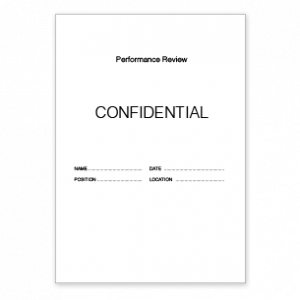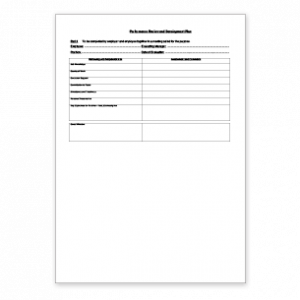Your guide to performance and wage reviews
There is no legal obligation to provide a pay rise or conduct a performance review unless this has been agreed in an employment agreement or workplace policy. We encourage you to apply best practice and regularly review employees’ performance and pay.
How much you pay, review periods, and pay rises are all up to you to negotiate with your employees. Of course, you must ensure that you are providing employees with the minimum entitlements set out in employment law.
Pay reviews
These are discretionary and you may choose not to increase an employee’s pay after a review. Pay reviews can be linked to an employee meeting specific performance criteria.
If an employee is unhappy with their current pay rate, they can approach you and try to negotiate a pay rise. If an employee requests a pay rise, we encourage you to consider the request and respond in good faith.
Performance reviews
It is good practice for employers and employees to have some form of performance criteria and feedback system to be in place that both the employer and employee understand. This helps employees and employers to have a shared view of how the employee is tracking against your expectations and what they need to do to improve. It can be a good tool to measure pay rises.
We recommend:
- Conducting performance reviews regularly, for example 3 or 6 monthly, to provide feedback on the employee’s performance and discuss expectations/objectives for the year.
- Having regular catch-up meetings, for example every 2 or 3 weeks, with your employee on the work they are doing and to provide feedback. Make sure that you cover off any negative feedback as part of your regular catch-ups.
- Preparing notes and examples of what has gone well and what hasn’t gone well. Time preparing beforehand will make the meeting more valuable.
- Allowing your employee time to prepare for the review. This is good practice that allows them to bring examples of good performance during the review period. It is useful to ask employees to think of things that might have gone better. This can be the basis for a great development conversation and is more meaningful than you pointing out issues.
- Making sure the employee knows their work is appreciated when they perform well, and discussing how they will continue to develop their skills.
- Linking the performance review with their salary review, so that good performance can be rewarded with an increase in salary where appropriate. If a pay rise isn’t a viable option, you could consider other options such as gift vouchers, or non-monetary rewards such as time off in lieu or discretionary leave.
It is important that you do not raise surprise issues in a performance review that were not discussed during the year in regular catch-ups. If you do and this results in a negative impact on the employee, for example withholding a pay increase, you may be seen as acting in a manner that was not fair or reasonable, having accepted (through your inaction) the employee’s performance.
Performance conversations should be documented and filed in a safe place. It is handy to have a record of conservations so these can be referred to if necessary.
See our templates for performance conversations
Retail NZ member? Make sure to log in to access these templates completely free.
If your employee is not performing well, make sure you clarify your expectations and support them by discussing what support they need. This could include providing additional training. It is important to give them time to improve performance.
If you’re still not sure, you can contact us at [email protected] or give us a call on 0800 472 472 (1800 128 086 from Australia).















